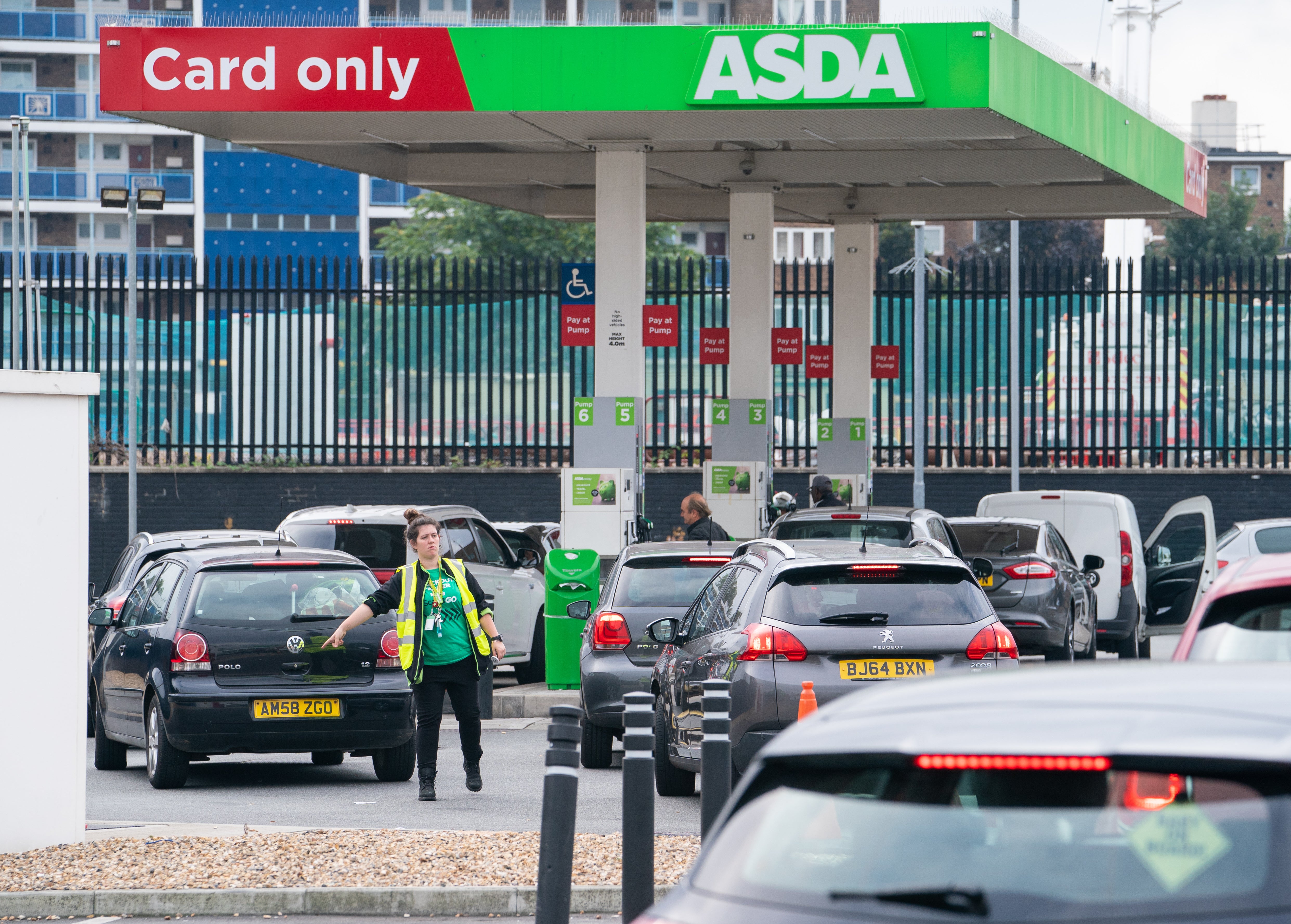Petrol prices below £1.50 a litre for first time since Ukraine war began
Motorists have been supported through a 5p fuel duty cut since February last year, though this is due to end in March
The average price of petrol has dropped below £1.50 a litre for the first time since Russia invaded Ukraine last February.
Motoring group The AA said falling global oil prices were the cause of the drop, signalling a “huge relief for drivers.”
Prices at the pumps peaked at a record 191.53p in July last year, with current average prices marked as 149.74p per litre on Monday, lower than the same time last February.
A spokesperson for The AA, Luke Bosdet, said it takes around £23 less to fill an average-sized family car with petrol than it did in July, at roughly £82.
Data from the motoring group RAC has suggested by July last year, the cost of filling the same average-sized family car had hit £105.29, while for diesel it was £109.47.
Speaking with the Express, Paul Holland, managing director of UK Fleet, said market factors like the war in Ukraine and the cost of living crisis have contributed to prices.
He said: “If I had to sum up 2022’s fuel price movements in a word, then that word would be: volatile.
“With an elimination of Russian oil and increasing demand across the globe, the genuine concern over availability and supply of oil has now been replaced by a realisation that the globe is simply not going to need as much oil in the short and medium term.
“Right now, we’re seeing the market agreeing with this assertion that supply is going to outstrip demand.”

The drop in prices comes as pressure continues to grow on UK retailers and supermarkets for not cutting prices quickly or significantly enough compared with the recent falls in oil prices.
In response to record prices, the competition and markets watchdog began investigations into the sector in July last year.
According to the AA’s December fuel price tracker, supermarket prices for unleaded were at an average price of 150.7p a litre, with the gap between supermarket prices and the UK overall average for unleaded increasing to 2.5p a litre.
The RAC also found that unleaded petrol at one of the big four supermarkets, Tesco, Sainsburys, Asda and Morrisons, fell by an average of 10p through December from an average of 157.86p to 147.76p.
Average diesel prices at supermarkets also decreased by 11.4p from 181.66p to 170.23p.
RAC Fuel Watch data for December suggests London had the highest petrol prices in the country at £1.53, with a litre of unleaded costing £1.77p.
Responding to high petrol prices, the government cut fuel duty by 5p a litre in February 2022 to help drivers, with the overall cut worth 6p when VAT is added, according to the AA.
However, this discount is scheduled to end in March, with fuel duty relief likely to conclude at the time of the Spring Budget.
The Office for Budget Responsibility’s own forecast in November predicted that fuel duty could soar by 23%.
David Cox, an independent energy analyst speaking with the BBC, warned that oil prices were likely to increase as China began easing its Covid rules and reopened its economy.
He said: “I think the outlook [for oil and petrol prices] is it will go back up. We’re in for a prolonged period of higher prices.”
Join our commenting forum
Join thought-provoking conversations, follow other Independent readers and see their replies
Comments






Bookmark popover
Removed from bookmarks